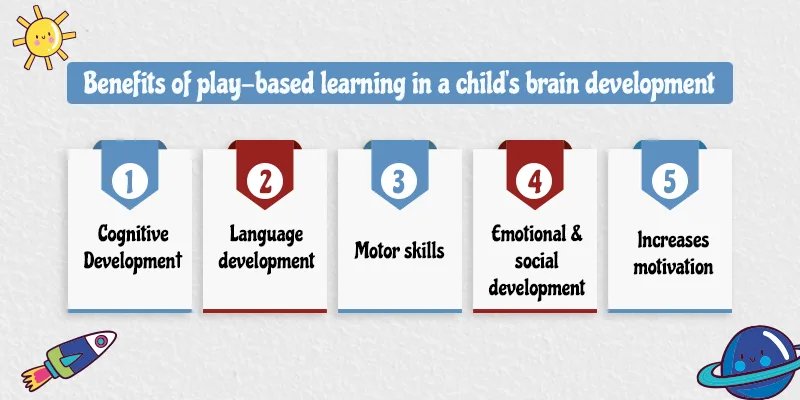
Play-based learning has gained recent recognition in recent years as one of the effective ways to promote early childhood development. Play is one of the essential activities that babies engage in. It is the key to a child’s learning, overall development, confidence and well-being. It is through playing that children make sense of the new environment and different information.
Compared to traditional approaches, which focused on structured learning, play-based learning instills natural curiosity and creativity in children. It helps to explore the world around them and experiment with new ideas.
A top nursery school in Kolkata, Little Scholars, recognises the importance of play-based learning and incorporates such activities to ensure that the students have a holistic learning experience to help in their brain development.
In this blog, we will discuss how play-based learning is not only engaging but also important for a child’s brain development, especially in the formative years.
Play-based learning is an educational approach which is the central part of the learning process. It is basically to learn while at play. This type of method makes sure that the child acquires social, emotional, physical and educational skills through fun activities. This could be anything like storytelling, simple games, drawing and singing.
Almost all the leading schools, especially Little Scholars, one of the top nursery schools in Kolkata, incorporate play-based learning in the curriculum because they have started to realise that play is not just a recreational activity. Rather, it is a vital part of how a child develops and grows.
Here is how play-based learning supports a child’s brain development.

One of the top nursery schools in Kolkata, Little Scholars, has adopted play-based learning as a vital part of a child’s brain development. It is through play that children make sense of the world around them, develop skills and reach their full potential.

Copyright © littlescholars.org.in | All Rights Reserved. Website Development & Digital Partner – BUSFAM